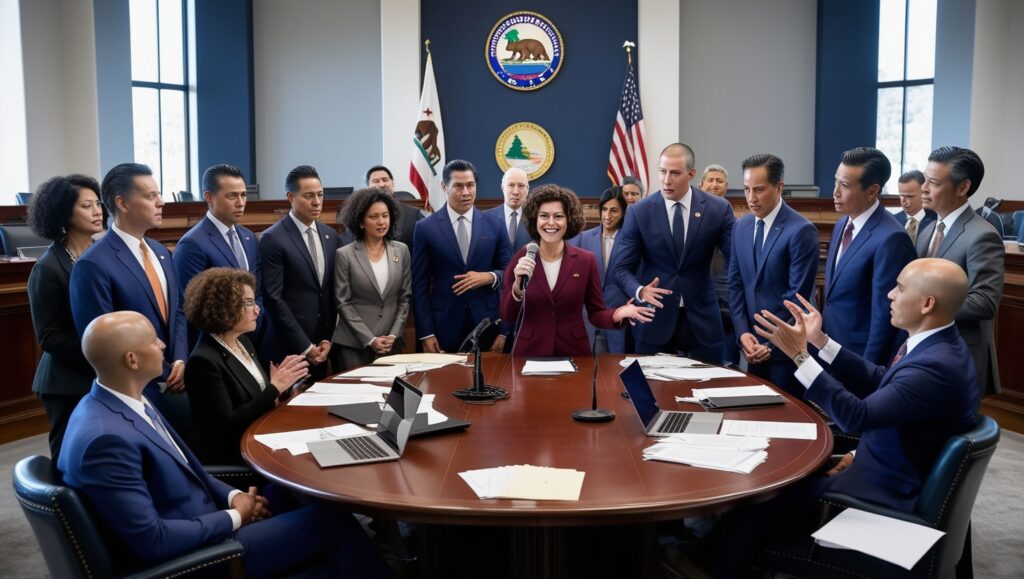This week, California lawmakers passed a number of bills intended to control the artificial intelligence sector, stop deepfakes, and shield workers from being taken advantage of by the quickly developing technology.
This week, the Democratic-controlled California Legislature is voting on hundreds of bills to be sent to Governor Gavin Newsom’s desk. The deadline is this Saturday.
The proposals are up for approval or veto by the Democratic governor, who has until September 30 to sign them into law. Newsom has not weighed in on additional legislation, but he did indicate in July that he will sign a proposal to crack down on election deepfakes.
He issued a caution earlier this summer, saying that excessive regulation might harm the domestic sector. He has been opposing legislation that he would otherwise support, frequently citing the state’s budgetary problems in recent years.
A few of the AI-related bills that lawmakers this year approved are shown below.
Combatting deepfakes
California lawmakers approved several bills this week to crack down on the practice, citing concerns over how AI tools are increasingly being used to sway voters and create deepfake pornography of minors.
Legislators passed a bill outlawing deepfakes in connection with elections and mandating that big social media companies take down misleading content sixty days after Election Day and 120 days prior to Election Day. It would also be mandatory for campaigns to make public any information they use in their ads that has been modified by AI.
The use of AI technologies to produce pictures and videos depicting child sexual abuse would be prohibited by two proposals. Until they can demonstrate that the materials are authentic, district attorneys are prohibited by law from prosecuting anyone found in possession of or disseminating images of child sexual abuse created by artificial intelligence.
Under a different proposal, users would have to get AI detection tools from tech companies and social media platforms.
Establishing safety barriers
California might be the first state in the union to impose extensive safety regulations on large AI models.
Developers are required to begin revealing the data they use to train their models by the legislation that legislators sent to the governor’s desk. The projects seek to stop catastrophic events in the future and provide additional insight into the operation of AI models.
Before agencies could enter into any contract involving AI models used to define decisions, another measure would require the state to set safety protocols preventing risks and algorithmic discrimination.
Safeguarding workers
Legislators approved a proposal to shield laborers, including voice actors and audiobook performers, from being replaced by their AI-generated clones, in response to the lengthy strike by Hollywood actors that took place earlier this year. The measure mimics language from the SAG-AFTRA’s December 2018 contract with the studios.
One of the proposals would prohibit state and local agencies from substituting workers at call centers with artificial intelligence.
California may also impose penalties for the digital cloning of deceased individuals without the estates’ permission.
Keeping up with the technology
Legislators in several states have also passed legislation to promote AI literacy as businesses integrate AI into people’s everyday lives more and more.
According to one plan, a working group at the state level would have to think about introducing AI concepts into the math, science, history, and social science curricula. Another would create guidelines for the use of AI in the classroom by educational institutions.








